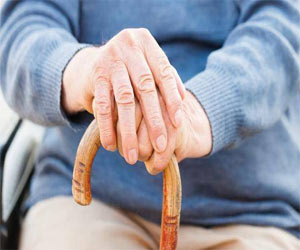- Home
- Editorial
- News
- Practice Guidelines
- Anesthesiology Guidelines
- Cancer Guidelines
- Cardiac Sciences Guidelines
- Critical Care Guidelines
- Dentistry Guidelines
- Dermatology Guidelines
- Diabetes and Endo Guidelines
- Diagnostics Guidelines
- ENT Guidelines
- Featured Practice Guidelines
- Gastroenterology Guidelines
- Geriatrics Guidelines
- Medicine Guidelines
- Nephrology Guidelines
- Neurosciences Guidelines
- Obs and Gynae Guidelines
- Ophthalmology Guidelines
- Orthopaedics Guidelines
- Paediatrics Guidelines
- Psychiatry Guidelines
- Pulmonology Guidelines
- Radiology Guidelines
- Surgery Guidelines
- Urology Guidelines
Frailty is not just about getting old: JAMA

Washington D.C: Many of us usually associate frailty with aging but it is not just about getting old, revealed a new study published in the JAMA open networks.
The study showed that frailty varies not only by age but also by sex, region, country income level. The study revealed that, in adults over 60s, chances of developing frailty were just 4.3 percent. And the findings also added that women were more likely than men to develop frailty.
Furthermore, the study found that high income and educational levels and greater access to and quality of health care confer lower frailty risk, which may partly explain the disparity in frailty incidence between low and middle-income countries (LMIC) and High-income countries (HIC), presenting opportunity to prevent or delay the onset of chronic pathologies associated with increased risk of frailty.
A landmark study published Journal of the American Medical Association (JAMA) Network Open, led by researchers at Monash University in Australia, explored the incidence of frailty in 120,000 people over the age of 60 in 28 countries.
It is the first global study to estimate the likelihood of community-dwelling older adults developing frailty.
The study, led by Dr Richard Ofori-Asenso and Professor Danny Liew from the Monash School of Public Health and Preventive Medicine, looked at 46 studies of more than 120,000 people across 28 countries to reveal that, in over 60s, 4.3 per cent will develop frailty per year.
According to Dr Ofori-Asenso, this is the first time that a global estimate of the incidence of frailty in the population has been quantified. The results also showed that women were more likely than men to develop frailty.
As yet, there is, no 'gold standard' definition of frailty, but researchers and clinicians tend to regard it as a condition that meets three out of the following five criteria:
- low physical activity
- weak grip strength
- low energy
- slow walking speed
- non-deliberate weight loss
Frailty is associated with a lower quality of life and a higher risk of death, hospitalization, and institutionalization. The condition tends to occur among older adults, but even young people can be frail if they have one or more disabling chronic diseases.
As more than 20 per cent of the world's population will be aged over 60 years by 2050, the number of people diagnosed with frailty is projected to increase.
According to Dr Ofori-Asenso: "our results suggest that the risk of developing frailty in older people is high. This is a worldwide problem and highlights a major challenge facing countries with ageing populations."
However, the news is not all bad. Interventions such as muscle strength training and protein supplementation may help to prevent or delay the progression of frailty.
Thus, the study authors advocate for "regular screening to assess older people's vulnerability to developing frailty so that appropriate interventions can be implemented in a timely manner".
Furthermore, in a previous study, the authors found that frailty may even be reversed, suggesting that the condition is a dynamic one.
To read the full study log on to doi:10.1001/jamanetworkopen.2019.8398

Disclaimer: This site is primarily intended for healthcare professionals. Any content/information on this website does not replace the advice of medical and/or health professionals and should not be construed as medical/diagnostic advice/endorsement or prescription. Use of this site is subject to our terms of use, privacy policy, advertisement policy. © 2020 Minerva Medical Treatment Pvt Ltd